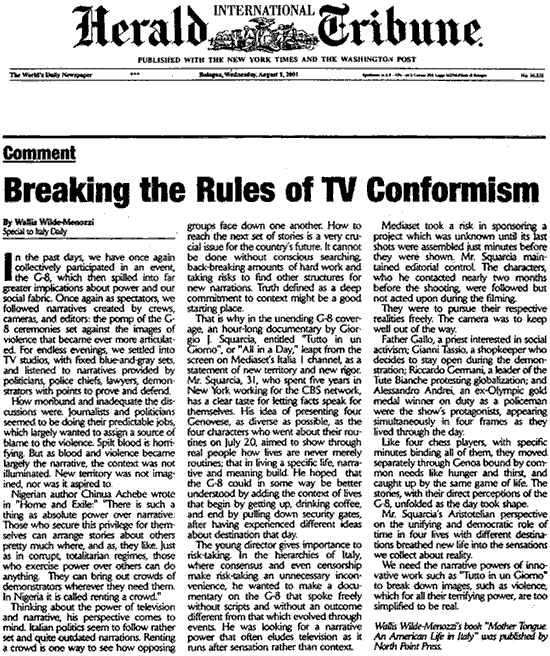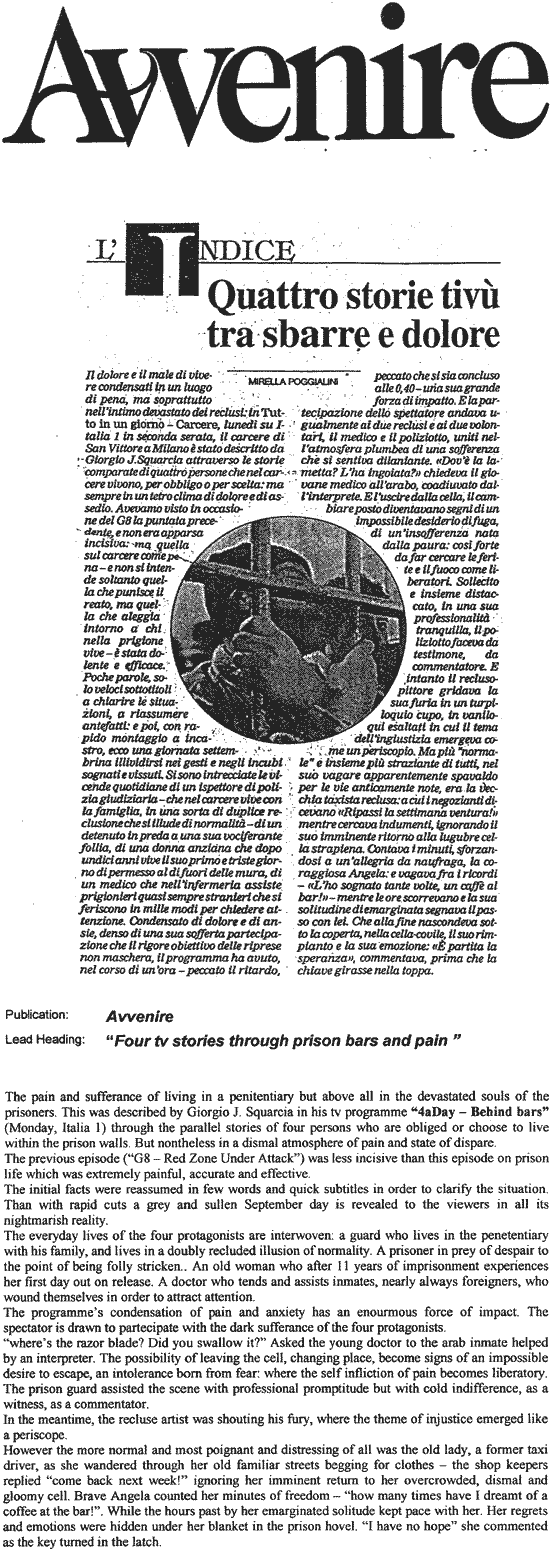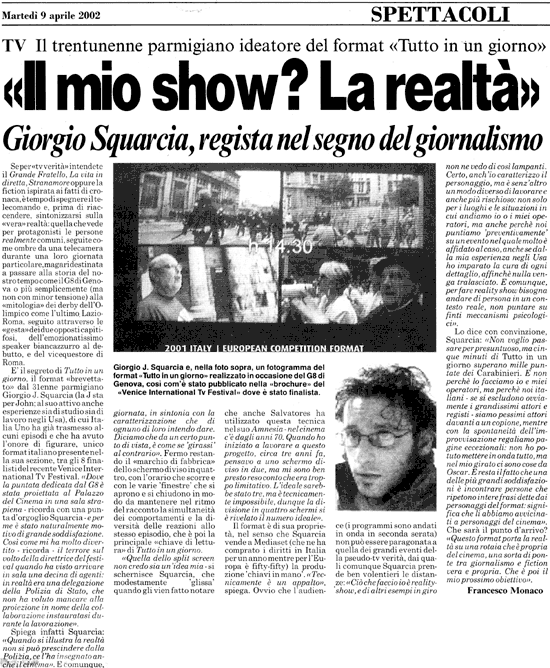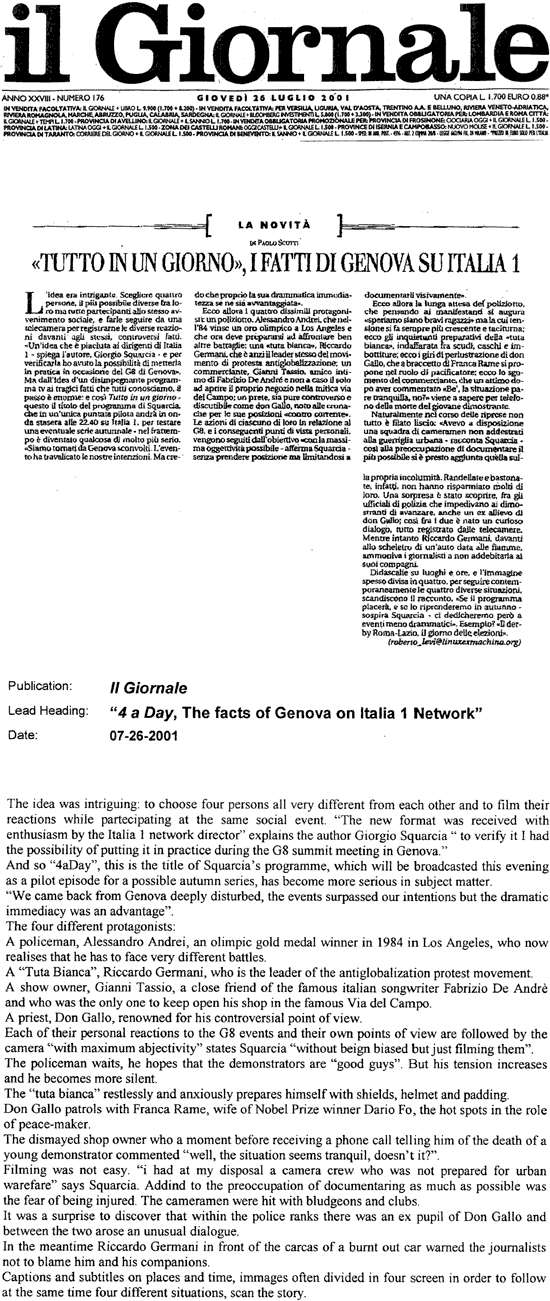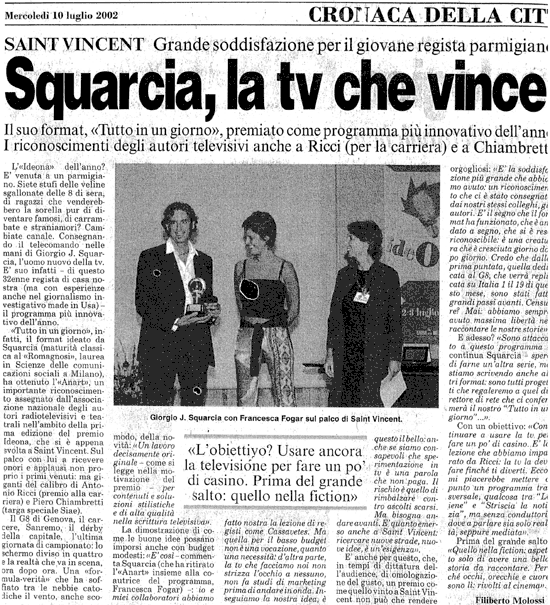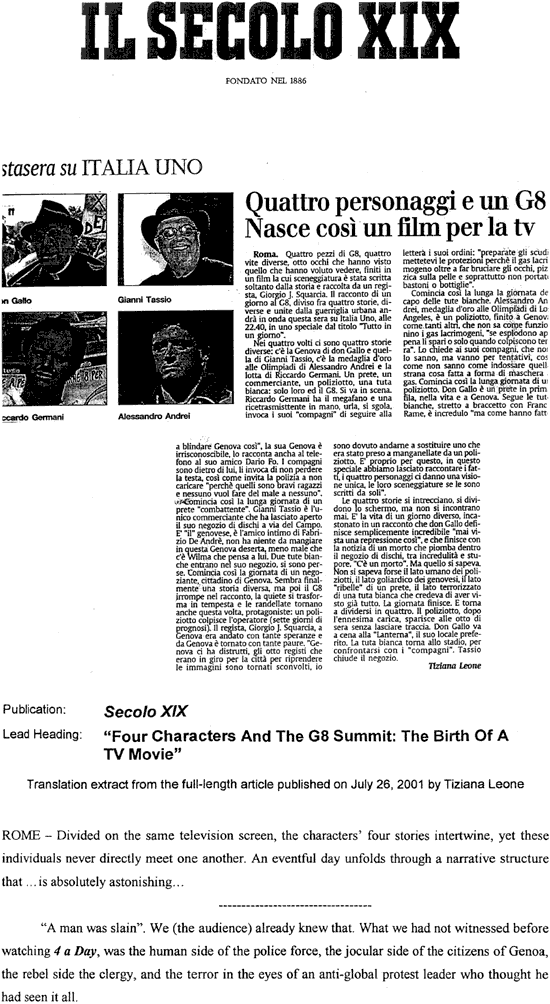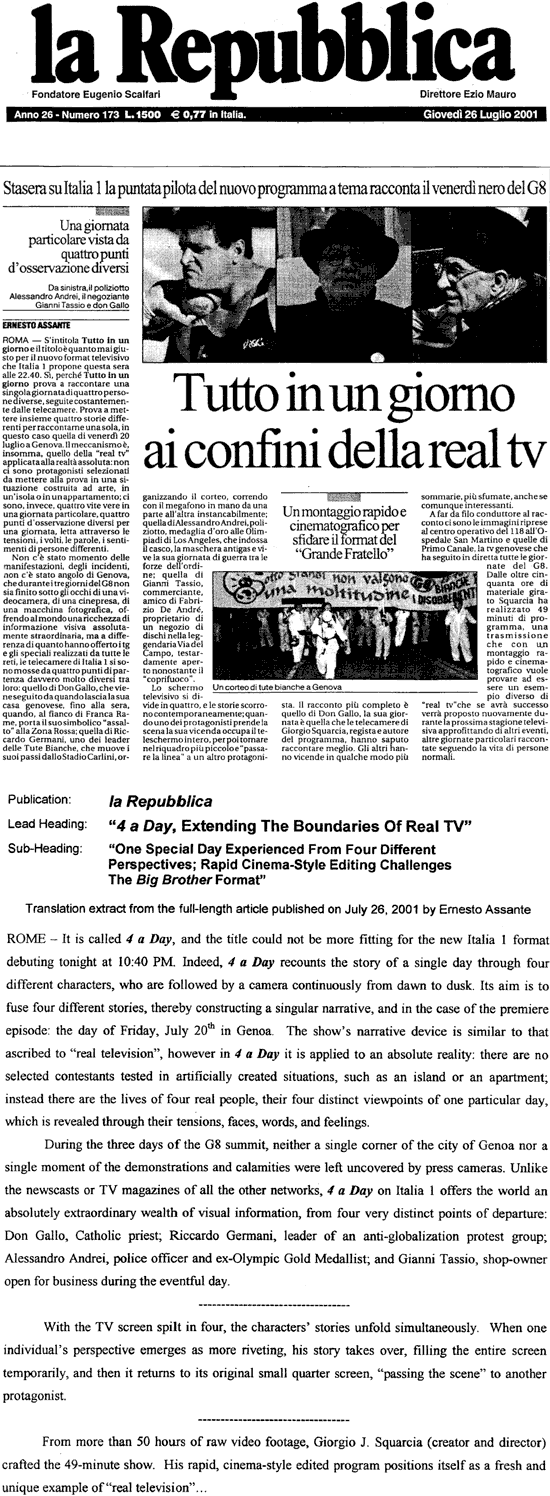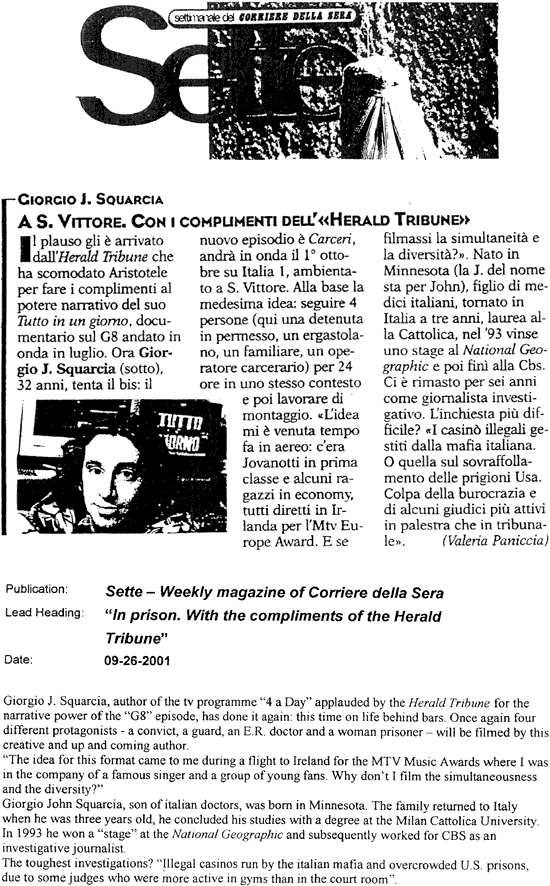ORIGINAL TITLE: TUTTO IN UN GIORNO
CREATED BY: GJ SQUARCIA
YEAR: 2001
N. OF EPISODES: 6
ORIGINAL NETWORK: ITALIA 1
For A Day is the diary of a day through the actions of four real characters. The format’s concept is to bring together four points of view, as diverse as possible, within a context of a specific event, limited to a a 24-hour period. The show’s narrative device is similar to that ascribed to “real television”, however in For A Day it is applied to an absolute reality: there are no selected contestants tested in artificially created situations, such as an island or an apartment; instead there are the lives of four real people, their four distinct viewpoints of one particular day, which is revealed through their tensions, faces, words, and feelings. With the TV screen split in four, the characters’ stories unfold simultaneously. When one individual’s prospective emerges as more riveting, his story takes over, filling the entire screen temporarily, and then it returns to its original small quarter screen, “passing the scene” to another protagonist.
The first of the 5 episodes of the movie takes place during the G8 meeting in Genova. Here is how it was covered by the media: During the three days of the G8 summit, neither a single corner of the city of Genoa nor a single moment of the demonstrations and calamieties were left uncovered by press cameras. Unlike the newscats or TV magazines of all the other networks, For A Day offers the world an absolutely extraordinary wealth of visual information, from very distinct point of departure: Don Gallo, Catholic priest; Riccardo Germani, leader of an anti-globalization protest group; Alessandro Andrei, police officer and ex-Olympic Gold Medallist; and Gianni Tassio, shop-owner open for business during the eventful day. With the TV screen split in four, the characters’ stories unfold simultaneously. When one individual’s prospective emerges as more riveting, his story takes over, filling the entire screen temporarily, and then it returns to its original small quarter screen, “passing the scene” to another protagonist. His rapid, cinema-style edited program positions itself as a fresh and unique example of “real television”.
LA REPUBBLICA – Ernesto Assante
For A Day is the diary of a day through the actions of four real characters. The format’s concept is to bring together four points of view, as diverse as possible, within a context of a specific event, limited to a a 24-hour period. The show’s narrative device is similar to that ascribed to “real television”, however in For A Day it is applied to an absolute reality: there are no selected contestants tested in artificially created situations, such as an island or an apartment; instead there are the lives of four real people, their four distinct viewpoints of one particular day, which is revealed through their tensions, faces, words, and feelings. With the TV screen split in four, the characters’ stories unfold simultaneously. When one individual’s prospective emerges as more riveting, his story takes over, filling the entire screen temporarily, and then it returns to its original small quarter screen, “passing the scene” to another protagonist.
The first of the 5 episodes of the movie takes place during the G8 meeting in Genova. Here is how it was covered by the media: During the three days of the G8 summit, neither a single corner of the city of Genoa nor a single moment of the demonstrations and calamieties were left uncovered by press cameras. Unlike the newscats or TV magazines of all the other networks, For A Day offers the world an absolutely extraordinary wealth of visual information, from very distinct point of departure: Don Gallo, Catholic priest; Riccardo Germani, leader of an anti-globalization protest group; Alessandro Andrei, police officer and ex-Olympic Gold Medallist; and Gianni Tassio, shop-owner open for business during the eventful day. With the TV screen split in four, the characters’ stories unfold simultaneously. When one individual’s prospective emerges as more riveting, his story takes over, filling the entire screen temporarily, and then it returns to its original small quarter screen, “passing the scene” to another protagonist. His rapid, cinema-style edited program positions itself as a fresh and unique example of “real television”.
LA REPUBBLICA – Ernesto Assante
"For A Day" won the Anart Award for best TV program in 2001
CREDITS
Idea: Giorgio J Squarcia
Directed by: Giorgio J Squarcia
Producers: Giorgio J Squarcia & Francesca Fogar, Luca Colocucci
A cura di: Carmen Liguori
Produttore Esecutivo: Roberta Braghi
Consulente editoriale: Leo Zani
Cameraman: Giovanni Vella, Lorenzo Garzella, Davide Barletti, Alberto Caffarelli, Francesco Andreotti, Francesco Cogoni, Cecilia Formenti, Krishna Agassi, Christian Maggi, Daniel Cavinato
Editors: Sergio Colnaghi, Max Erranti, Paolo Pastore, Lorenzo Barnetti, Stefania Calatroni, Massimiliano Andolina, Chiara Zamboni
Assistenti alle regie: Antonella Squarcia, Matteo Fragni, Vittorio Gerosa, Federica Frigo, Tonino Monfregola, Paolino Sassano, Fiona Charlesworth.
Direttore di Produzione: Pietro Fibra, Riccardo Comini
Assistente di Produzione: Carmen Ragno
Ufficio Stampa: Rudy Gottardo
Consulente Musicale: Enrico Magli
Videografia: Dario Balestra, Marco Pizzo
Titoli Elettronici: Giorgio Brivio
Post Produzione: Interactive Group SPA
Montaggio: Avid
Si ringraziano: Stefano Magnaghi, Alessandro Saba

